The Electronic Intifada 30 September 2020
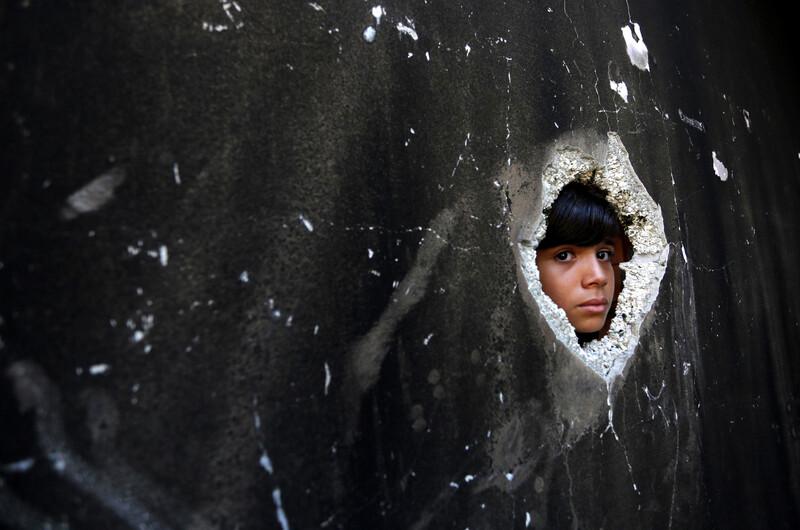
A child peers through a hole in the wall in a home that caught on fire, killing three children, in Nuseirat refugee camp, central Gaza, on 1 September. The fire is believed to have been caused by a candle lit during a power outage after Israel cut off fuel to Gaza’s power plant in an act of collective punishment over the launching of incendiary balloons from the territory.
APA imagesTwo Palestinian brothers were killed by the Egyptian army while fishing off of Gaza’s coastal waters on 25 September. A third brother was injured.
Their boat is suspected to have crossed into Egyptian waters, according to the Gaza-based human rights group Al Mezan. The group called for an investigation and urged Egyptian authorities to review their open-fire regulations.
Weeks earlier, three brothers aged 5 and younger were killed in a house fire in central Gaza’s Nuseirat refugee camp on 1 September.
The fire was likely started by a candle during a power outage after Israel temporarily banned fuel deliveries to Gaza’s sole power station, reducing the availability of electricity in the territory.
The fuel ban – a form of collective punishment – was presented as a response to incendiary balloons launched from Gaza toward southern Israel.
As of 26 September, Palestinians in Gaza received an average of 11 hours of electricity per day.
Coronavirus and collective punishment
The Gaza Strip has been under a comprehensive siege enforced by Israel and Egypt since 2007.
As cases of coronavirus surged in Gaza during the month, international development agencies working in Palestine called on Israel “to end all collective punitive measures against the civilian population” in the territory.
Cases of COVID-19 rose by 86 percent in Gaza during September, the World Health Organization stated on 24 September.
A shortage of coronavirus test kits was reported in both Gaza and the West Bank during the month.
There have been nearly 50,000 confirmed cases in occupied Palestinian territory, more than 300 of them fatal.
Home demolitions
Israel announced a three-week lockdown until 11 October as coronavirus cases spiked in there.
Cases of the coronavirus surged in neighboring Jordan in September as well.
UN humanitarian coordinator Jamie McGoldrick said that Israel’s unlawful demolitions of Palestinian-owned structures in the West Bank have spiked during the coronavirus crisis, leaving hundreds of people homeless.
“The global pandemic has increased the needs and vulnerabilities of Palestinians, who are already trapped in the abnormality of prolonged military occupation,” McGoldrick stated. “Unlawful demolitions exacerbate these vulnerabilities and must stop immediately.”
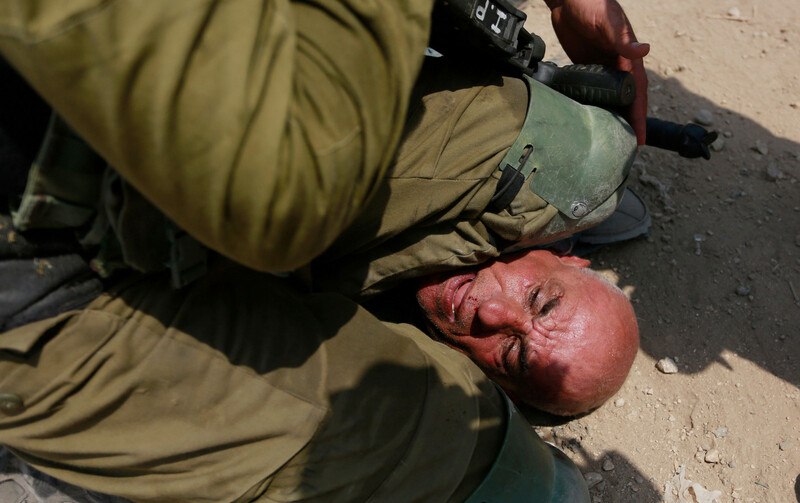
Israeli soldiers detain a Palestinian protester during a demonstration against settlement expansion in the village of Jbara, south of the West Bank city of Tulkarm, on 1 September.
APA images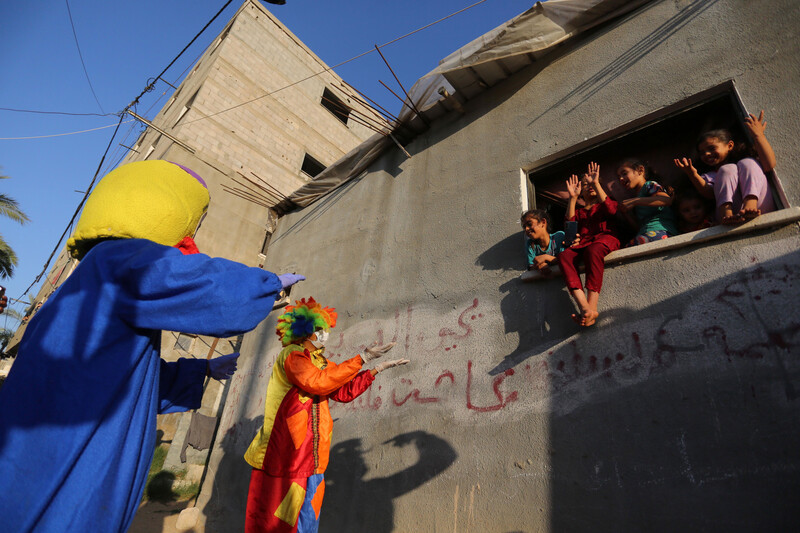
Palestinians entertain children during a lockdown following the outbreak of COVID-19, Khan Younis, southern Gaza Strip, on 2 September.
APA images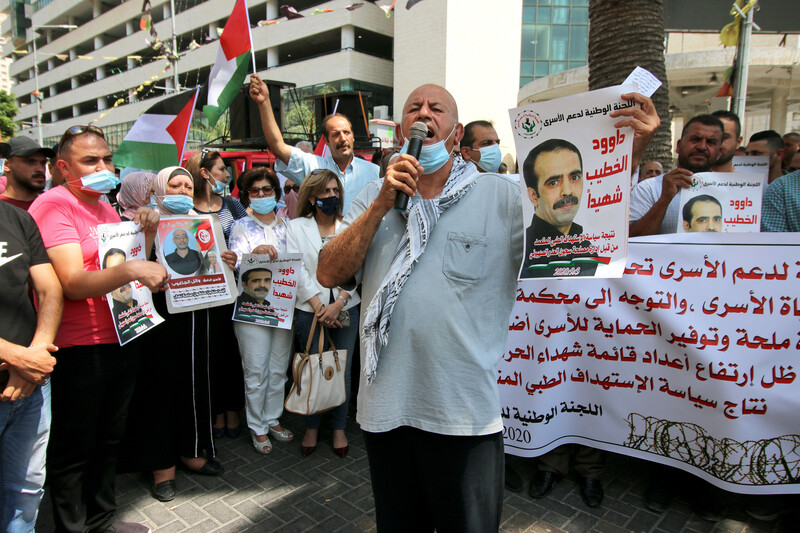
Palestinians hold a vigil in the West Bank city of Nablus on 3 September to mourn prisoner Daoud al-Khatib, 45, who died of a heart attack in Israeli prison the day before. Al-Khatib, arrested in 2002 due to his military activity against the Israeli army, was only three months away from the end of his 18-year sentence.
ActiveStills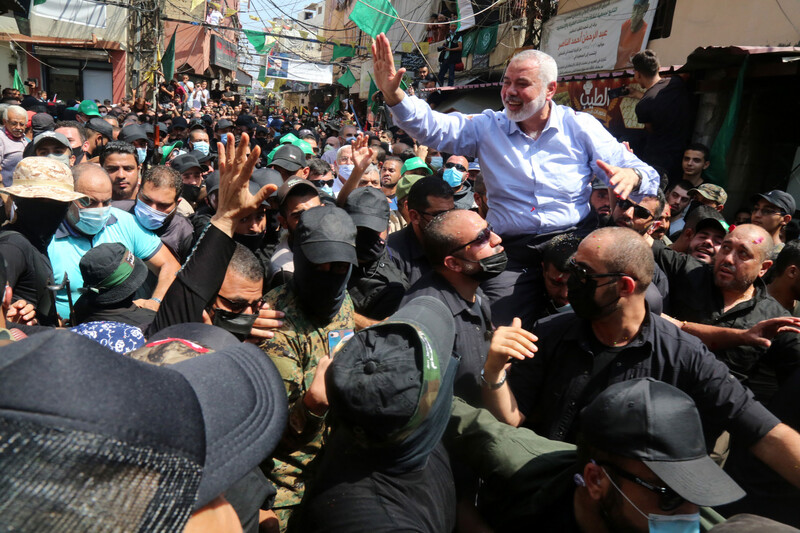
Hamas chief Ismail Haniyeh visits Ein al-Hilweh refugee camp in south Lebanon on 6 September. Haniyeh met with Palestinian factions over Arab states normalizing relations with Israel during his first visit to Lebanon in 27 years.
Media office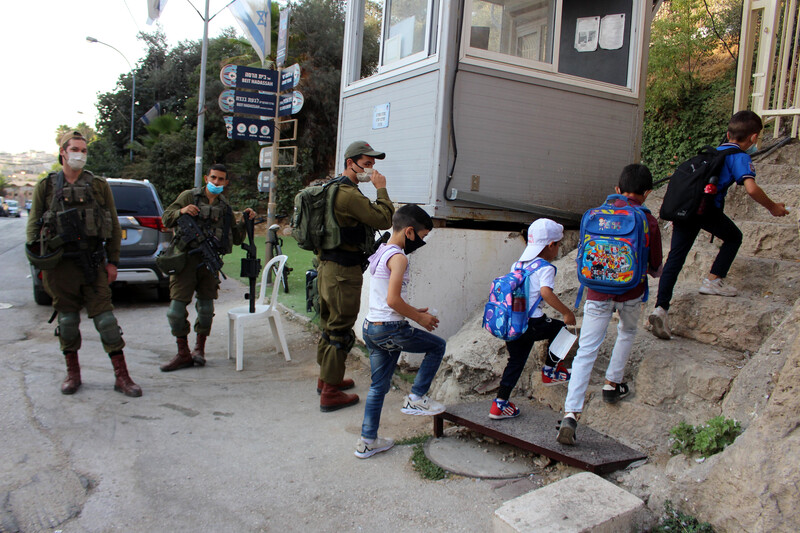
Palestinian children walk past Israeli soldiers on their way to school in the West Bank city of Hebron’s Old City on 6 September.
APA images
A dog name Billy undergoes rehabilitation for a new prosthetic limb in cooperation with Gaza municipality’s artificial limbs center at the Sulala Society for Animal Care shelter in Gaza City on 10 September.
APA images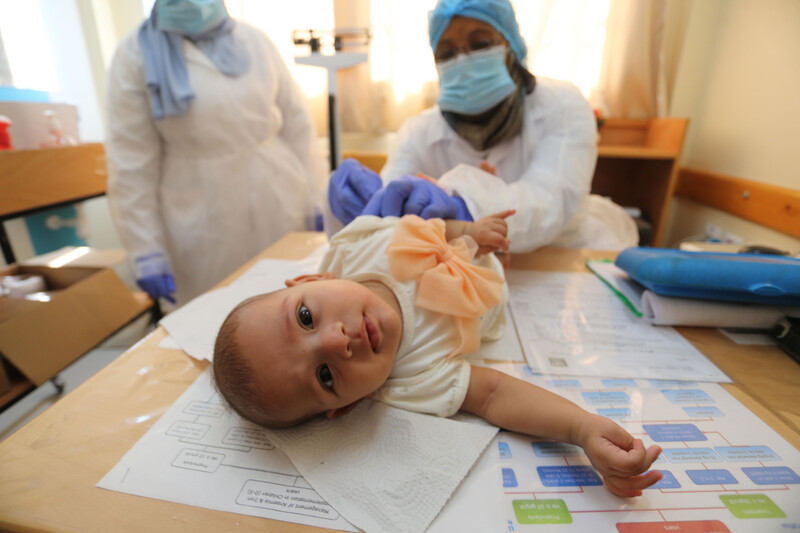
An employee with UNRWA, the UN agency for Palestine refugees, administers vaccines to a baby in a clinic in Deir al-Balah, central Gaza Strip, on 12 September.
APA images
Palestinian artists paint a mural to help curb the spread of COVID-19, Deir al-Balah, central Gaza Strip, 13 September.
APA images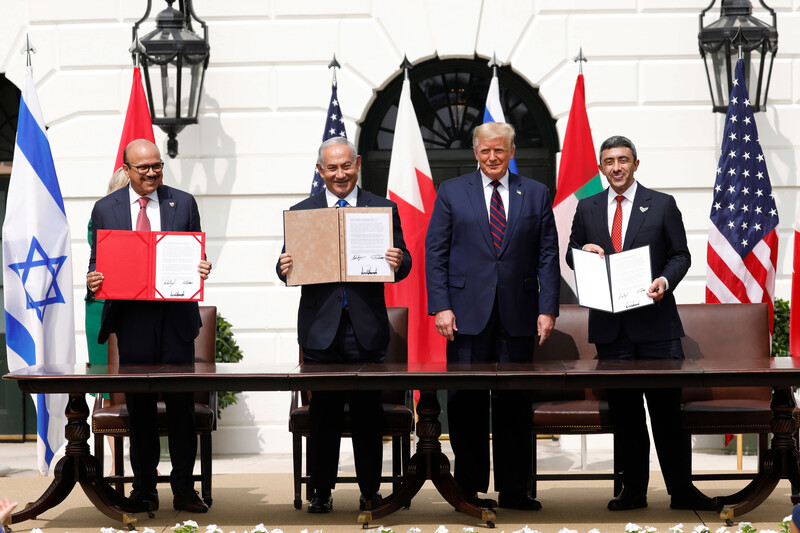
US President Donald Trump, Israeli Prime Minister Benjamin Netanyahu, along with Sheikh Abdullah bin Zayed Al Nahyan, the United Arab Emirates foreign minister, and Abdullatif bin Rashid Al Zayani, foreign minister of Bahrain, sign an agreement normalizing relations between Israel and the Gulf states at the White House lawn in Washington on 15 September.
Polaris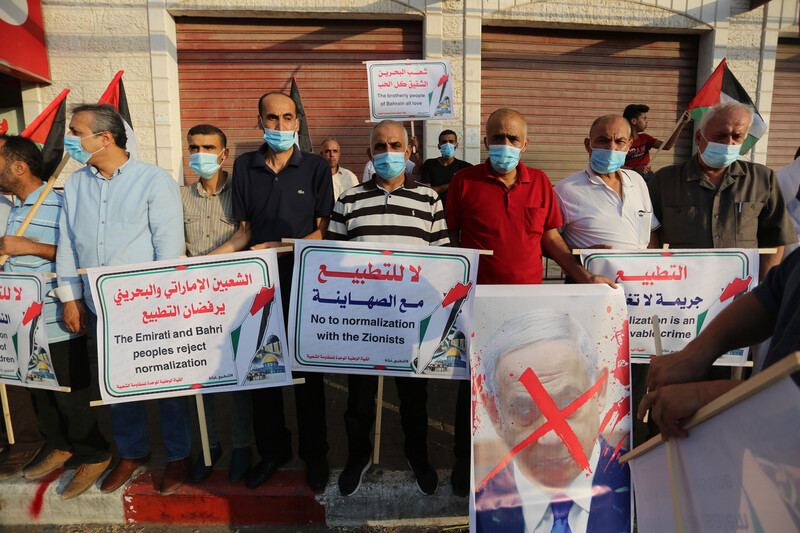
Palestinians in central Gaza’s Nuseirat refugee camp protest against the United Arab Emirates and Bahrain normalizing relations with Israel, 15 September.
APA images
Israeli bulldozers raze land along inside Gaza’s eastern boundary in Bureij, central Gaza, on 15 September.
APA images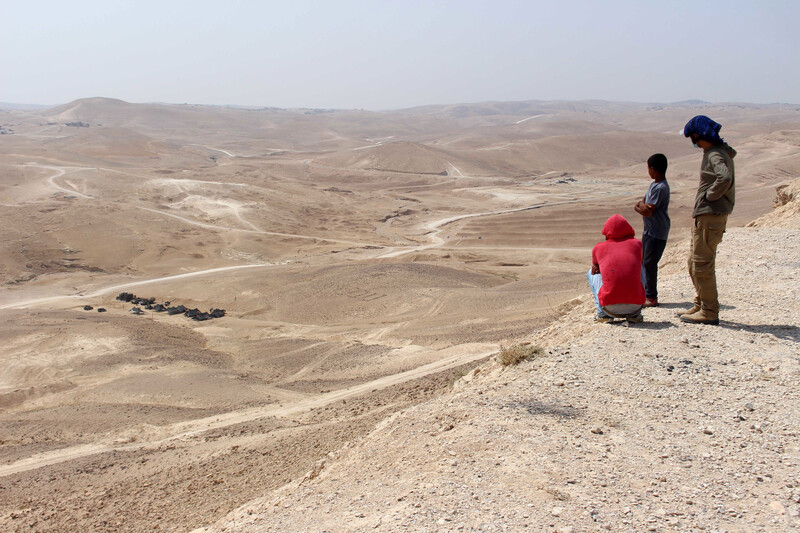
Palestinians watch Israeli soldiers during a military training exercise in Yatta village, southern West Bank district of Hebron, on 16 September.
APA images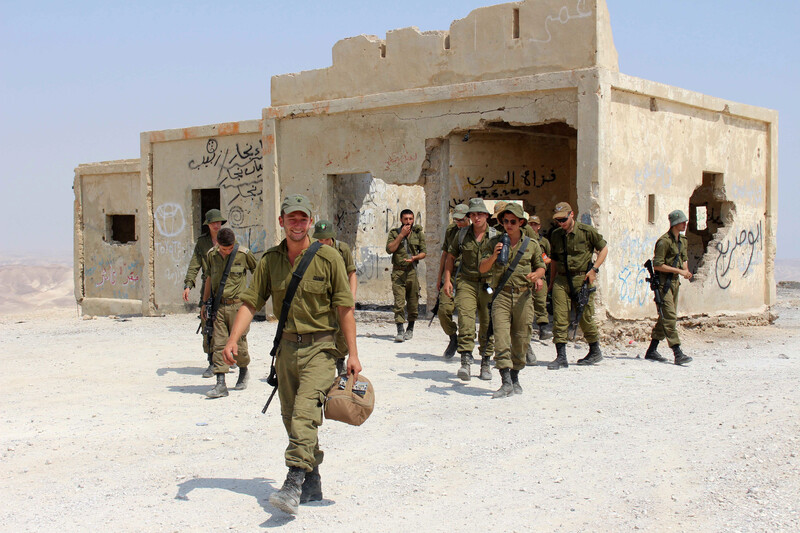
Israeli soldiers participate in a military training exercise in the Palestinian village of Yatta, southern West Bank district of Hebron, on 16 September.
APA images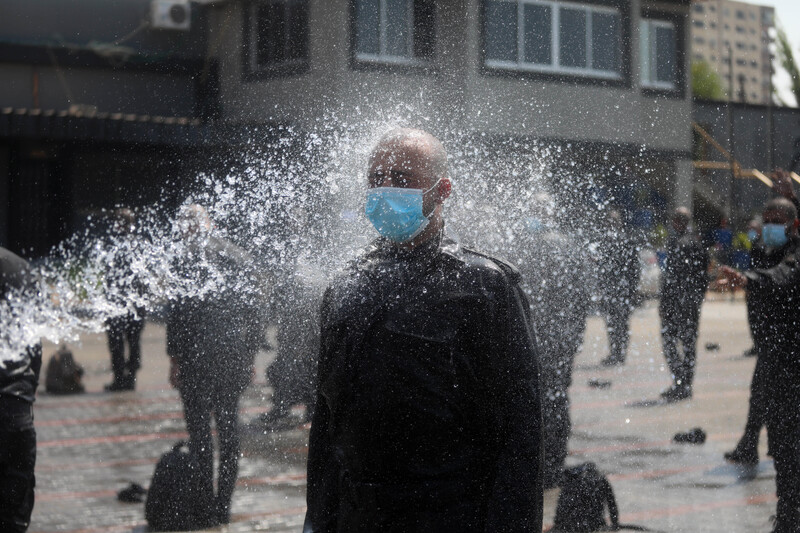
A Palestinian police officer spays a recruit with disinfectant during a training session in Gaza City on 17 September.
ActiveStills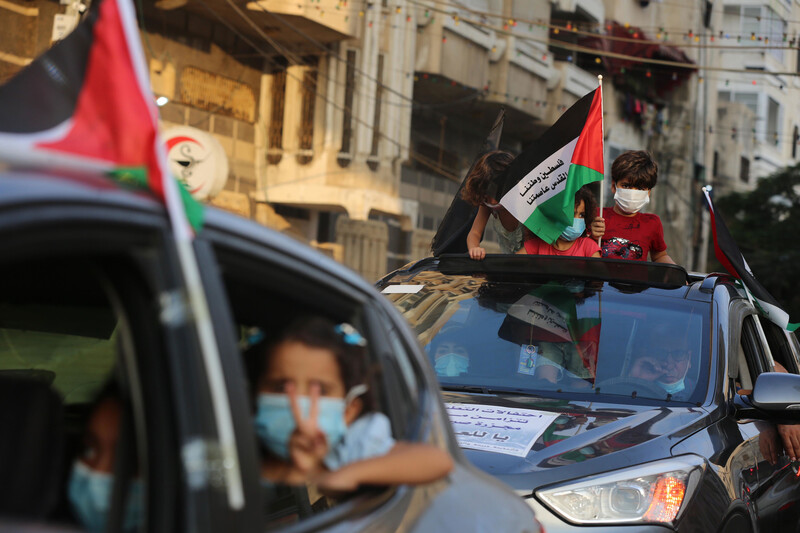
Palestinians in Gaza City take part in a caravan to mark the anniversary of the Sabra and Shatila massacre and to protest against the United Arab Emirates and Bahrain normalizing relations with Israel, 17 September.
APA images
Palestinians sit on the beach at al-Shati refugee camp, Gaza City, on 18 September.
APA images
Palestinians wear protective face masks and practice physical distancing as they shop at a supermarket in Gaza City on 19 September.
ActiveStills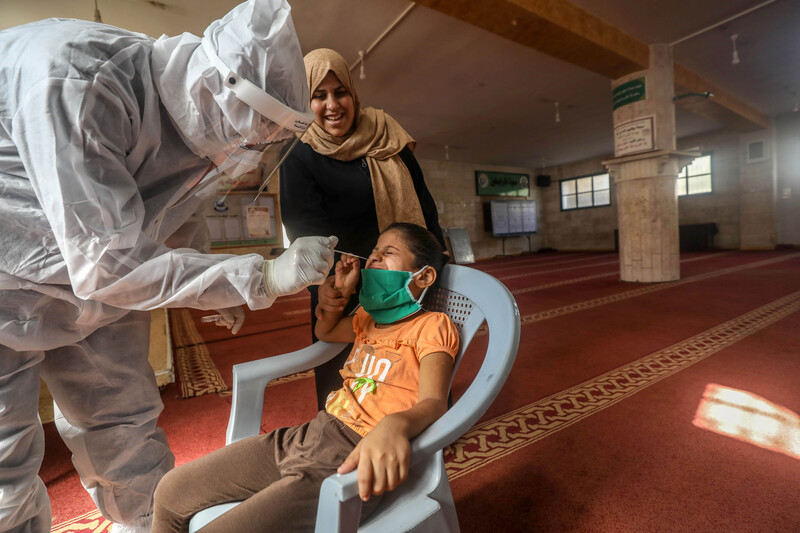
A Palestinian medical worker takes a sample from a child at a mosque in Gaza City on 20 September while testing for potential COVID-19 cases.
ActiveStills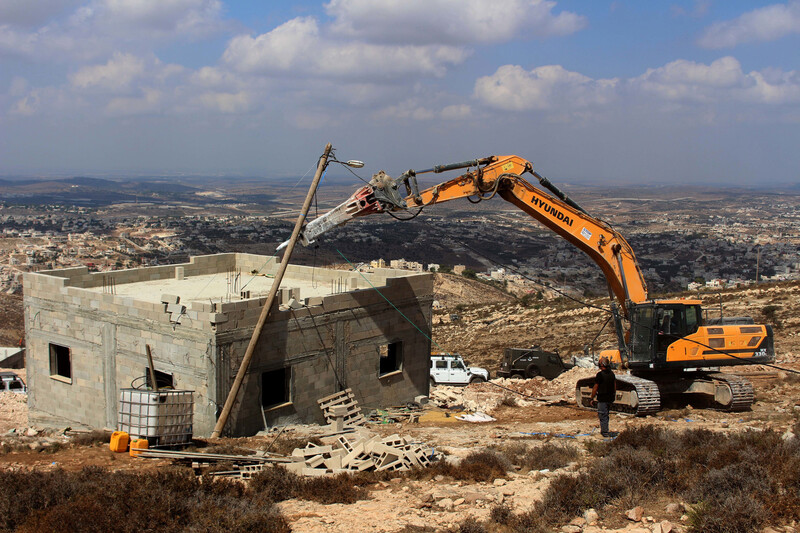
Israeli forces destroy a Palestinian home on the pretext that it was built without a permit in the town of Beit Awa, near the West Bank city of Hebron, on 23 September.
APA images
Palestinian farmers harvest dates from a palm tree in Deir al-Balah, central Gaza Strip, on 24 September.
APA images
An Israeli settler watches Palestinians protest against land confiscation in Asira al-Qibliya village in the West Bank, 25 September. At least two Palestinians were injured after the Israeli army and a group of armed settlers dispersed the protest.
ActiveStills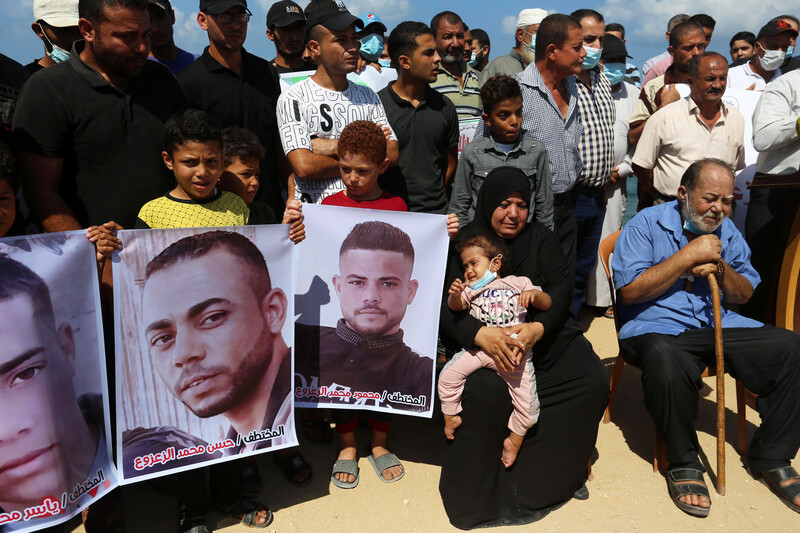
The parents of three fishers who went missing after they were fired on by the Egyptian Navy participate in a protest in Deir al-Balah, central Gaza Strip, on 26 September. Two of the fishers were later confirmed to have been killed and the third brother was injured
APA images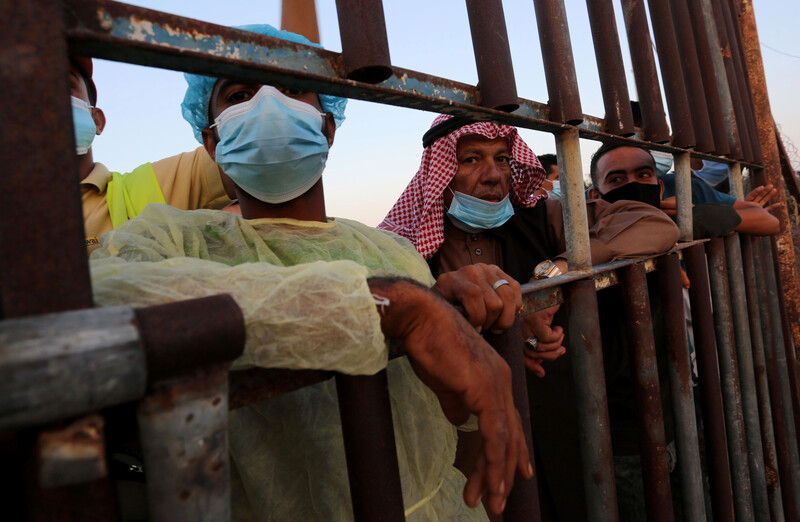
Palestinians wait for permits to cross into Egypt via Rafah crossing, Rafah, southern Gaza Strip, on 27 September.
APA images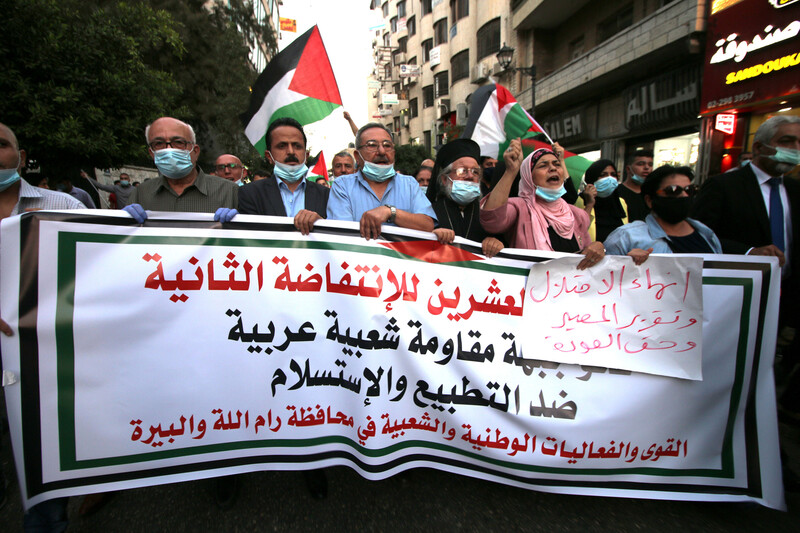
Palestinians march in the West Bank city of Ramallah to commemorate the 20th anniversary of the second intifada against Israeli occupation and colonization, 28 September.
ActiveStills
Palestinian Authority Prime Minister Mohammad Ishtayeh chairs the weekly meeting of his government in the West Bank city of Ramallah, 28 September.
Prime Minister’s office
Palestinian children wear protective face masks as they cool off in a pool set up on a Gaza City rooftop, 28 September.
APA images
Palestinian parkour players wear protective face masks as they show off their skills on a Gaza City rooftop on 28 September.
APA images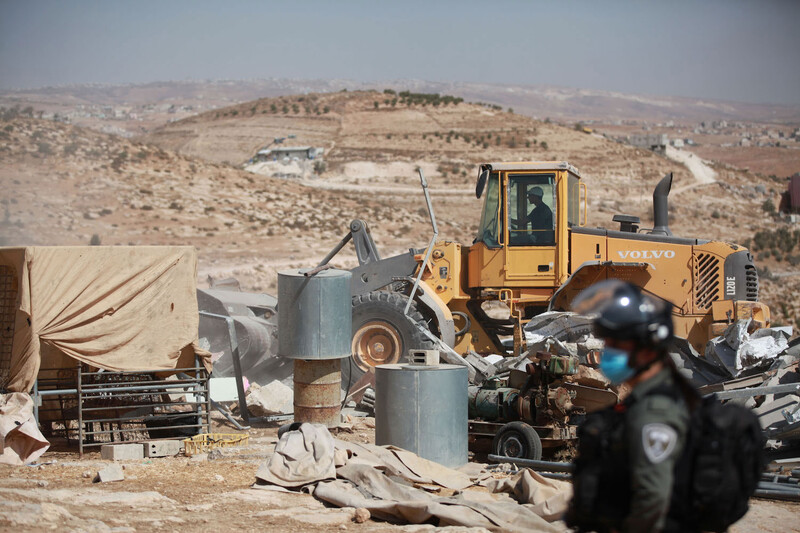
An Israeli Border Police soldier stands guard as Israeli machinery demolishes a Palestinian home near the West Bank city of Hebron on 30 September.
WAFA

